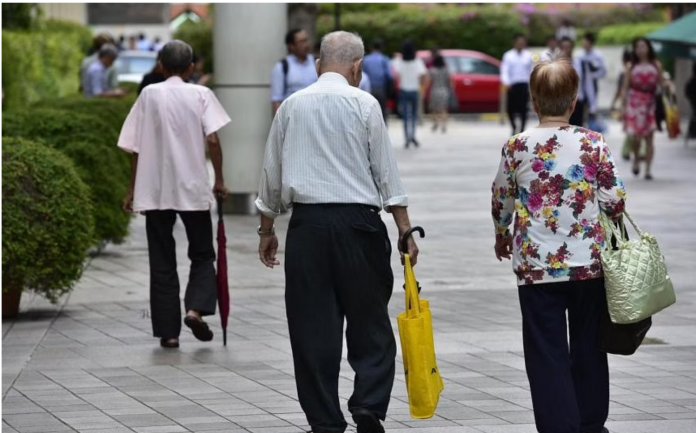Singapore is the world’s latest “blue zone” — defined as a place where people live longer and healthier lives.
“Singapore has the highest health-adjusted life expectancy in the world. So, whatever Singapore did, it worked at producing the longest, healthiest life on the planet,” Dan Buettner, who coined the term “blue zones” told CNBC Make It.
Blue zones are places that have 10 times more centenarians compared to the U.S. on a per capita basis.
The five original blue zones are: Ikaria (Greece), Okinawa (Japan), Nicoya (Costa Rica), Sardinia (Italy) and Loma Linda (United States) — but Singapore is on Buettner’s new list, dubbed “blue zone 2.0.”
While the original blue zones came about by natural circumstances, blue zones 2.0 are man-made.
“The old blue zones are disappearing because they’re becoming Americanized,” Buettner said. “Mechanization is replacing physical activity and technology is disconnecting people from face-to-face interactions.”
In 2004, Buettner joined forces with National Geographic and the National Institute of Aging to try to “reverse engineer” longevity. The team identified parts of the world where people were living measurably longer lives, then worked to find out why people in such communities lived longer.
‘Power 9’
Buettner and his team identified the “Power 9” — core factors that represent the habits of the world’s healthiest and longest-living people.
These nine principles are:
- moving naturally in everyday life
- having purpose
- keeping routines to de-stress
- stop eating when 80% full
- eating more plant-based
- consuming alcohol moderately and regularly
- being part of a community
- keeping loved ones close
- being surrounded by people with healthy habits.
Singapore is an “engineered longevity hotspot,” Buettner previously said.
Here are some drivers of wellness built into the fabric of Singapore’s policy.
Walk, don’t ride
While people in many parts of the world drive from place to place, most Singaporeans walk — but this is usually out of necessity, rather than for the purpose of exercising.
“Singapore, I think is brilliantly taxing automobiles, taxing gasoline, taxing through the use of roads … and then invested hugely in walkability and bikeability and public transportation,” Buettner told CNBC.
“That’s not just a coincidence, that is very good planning … as a result, you drive people out from behind the steering wheel, onto their feet,” he added.
In order to buy a car in Singapore, you must first get a license to own a car, the COE or certificate of entitlement, which can cost more than the car itself.
For comparison, as of March, the listed price for a Toyota Camry Hybrid in Singapore is 209,888 Singapore dollars (approx. $155,800). In the U.S., it is listed for a fraction of the price at $28,855.
Keep loved ones close
Research shows that people in blue zones tend to prioritize their loved ones and keep them nearby.
This is seen in Singapore’s policy known as the Proximity Housing Grant that financially incentivizes people to live with, or near their parents and children.
“Instead of warehousing old people in a retirement home, as we do in the United States, the older people there — they stay engaged with the family. More often, they get better care from the family, so this is all favoring the life expectancy of older people,” Buettner said.
Sense of belonging
Belonging to a faith-based community can correlate with longer life-expectancy, the research found.
“All but five of the 263 centenarians we interviewed belonged to some faith-based community,” according to Buettner. “Research shows that attending faith-based services four times per month will add 4-14 years of life expectancy.”
Almost 80% of adult Singaporeans are religiously affiliated, according to the Pew Research Center. Also, a 2014 Pew Research study ranked the city-state as the most religiously diverse country in the world.
Opt for healthy habits
Singapore has done well in making “healthy food cheaper and more accessible than junk food,” said Buettner. The country has created incentives for food establishments to provide healthier options.
Healthier options such as brown rice and wholegrains are being promoted by the Health Promotion Board. The health ministry has also created a labeling system that shows residents which food stalls have healthier options.
Smoking has been made “difficult, unattractive and expensive,” Buettner said. “Singapore has done a good job with the look of cigarette packs, with those pictures of mouth cancer … they were one of the first countries to tax cigarettes.”
Accessible health care
Singaporeans enjoy universal health care which means residents have access to quality medical care, including health services such as prevention, treatment, rehabilitation and palliative care. The government has worked to create policies that subsidize health-care costs.
“In America here, health care is enormously expensive and inefficient at producing health because the priorities that govern policy are economic,” Buettner said
“The agenda of Lee Kuan Yew and his colleagues was different. They were trying to actually make sure people stayed healthy, rather than make money off of people,” he added, referring to Singapore’s founding father who was the country’s first prime minister.
Strict laws
Singapore is known for its strict laws. The ban on chewing gum or the hefty fines for eating on public transportation are popular examples.
However, the country is also known to be very strict on guns and drugs. An offense of either could lead to jail time, judicial caning, or the death penalty.
“The fact that guns are illegal in Singapore … when it comes to life expectancy — it’s a very smart policy. In the United States, we lose about 55,000 people to gun deaths every year, Singapore loses about three,” Buettner said.
“The draconian laws on drugs — we ought to be paying attention to that. The United States lost over 100,000 people in drug deaths last year and Singapore lost about 20,” he added.
Source: CNBC


